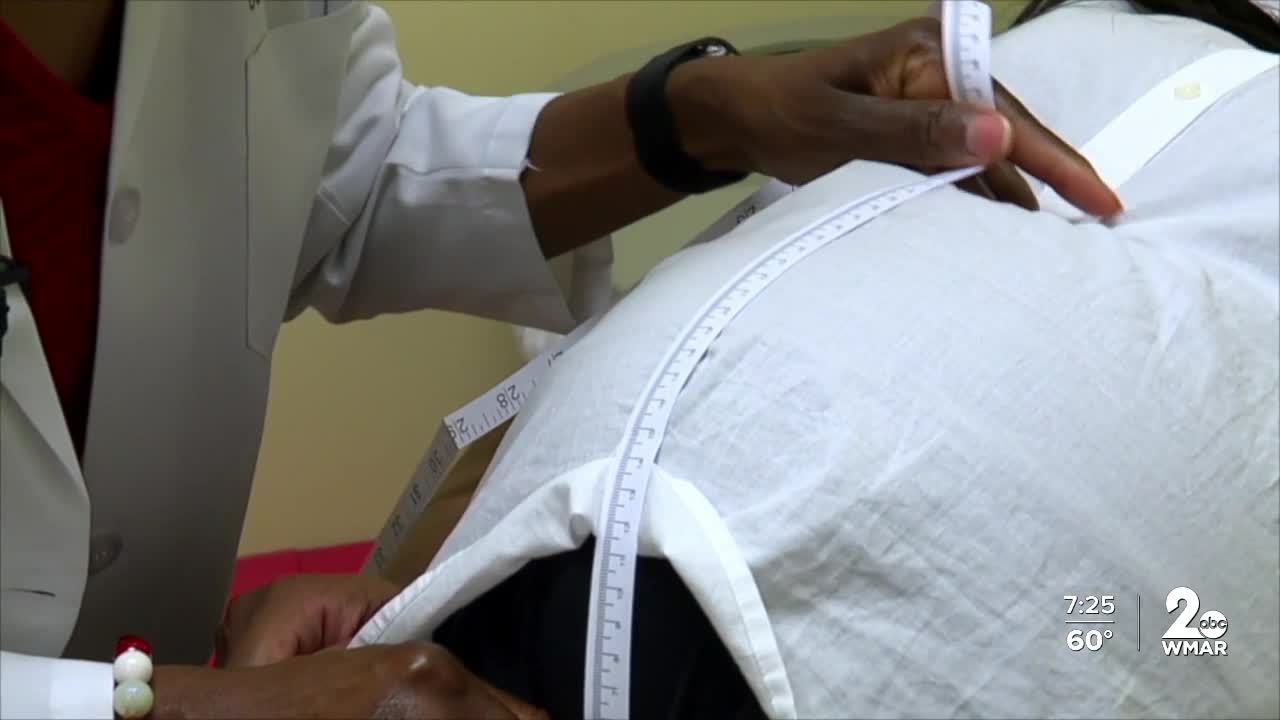The relationship between a patient and their provider can make a huge difference when it comes to birthing outcomes.
Whitney Saunders is seven months pregnant—just weeks away from meeting her baby boy.
“I’m extremely excited. I cannot wait for this baby to get here,” she said.
This will be Whitney’s first child, but not her first pregnancy.
“This go-around, it's like when you go through something bad the second time—you know what to look for, you know what questions to ask,” Whitney explained.
A few years ago, she miscarried twins. She was five months along.
“I didn't feel like the necessary work was done in terms of making sure certain tests were run,” she added. “It really hit me. I dealt with some postpartum. I carried twins for all those weeks. I did all the work, and it’s like I don’t have anything to show for it.”
This time, Whitney says it was crucial for her to find an OB/GYN of color.
“A lot of people just feel like they weren’t listened to, which seems so basic, and it really seems like we’re failing as providers because that’s half of our job is listening,” said Dr. Carmen Farrior, an OB/GYN at the University of Maryland St. Joseph Medical Center.
She has been working closely with Whitney to address her concerns.
“Preeclampsia, although it usually happens at the end of pregnancy, can start to happen early in some women—particularly women of color,” Dr. Farrior explained to Whitney.
She also emphasized that many Black mothers have reported not feeling seen or heard by their providers.
Black women in the United States are more than three times more likely to die from pregnancy-related causes than white women, according to the CDC.
“We have to look at our own implicit biases—what makes us document a certain attribute about someone who looks a certain way, that they’re aggressive, noncompliant, or easily agitated. That is going to color someone else’s picture when they pick up that chart and interact with that patient,” Dr. Farrior said.
Dr. Farrior highlighted another major gap in maternal healthcare: postpartum care.
“There’s been a lot of legislation pushing to cover insurance because a lot of women lose their insurance after six weeks,” she said. “We give our patients a bracelet that says, ‘I delivered. I’m still at risk. I delivered less than a year ago.’”
For those feeling anxious or uncertain during pregnancy, Dr. Farrior offers a helpful acronym:
BRAIN
- Benefits – What are the advantages of a specific intervention?
- Risks – What are the potentials consequences or complications?
- Alternatives – Are there other options or approaches available?
- Intuition – What is my gut or intuition telling me?
- Nothing – What happens if I say no, or not now?
“I’ve always wanted to be in a community where I can take care of people who look like me,” Dr. Farrior shared. “So I trained for medical school, completed my residency and chose to practice in a more metropolitan area for exactly that reason.”




